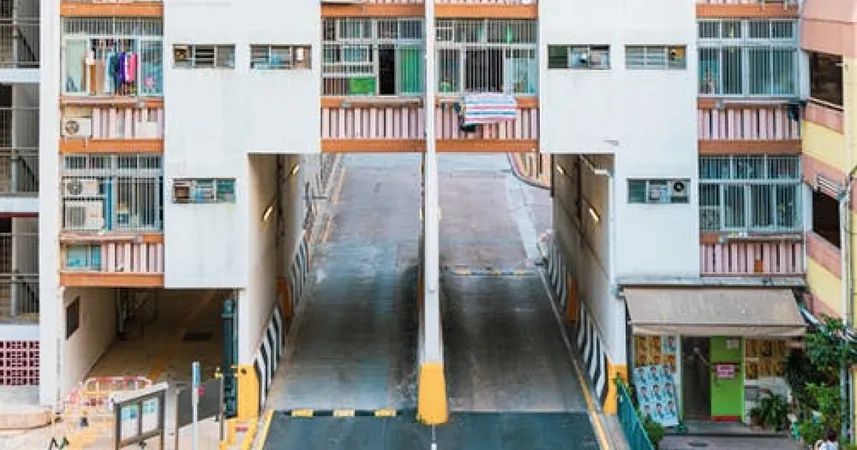
Tariff Uncertainties: The Real Impact on Hong Kong Home Prices
2025-06-23
Author: Kai
Hong Kong's housing market is in turmoil, grappling with an abundance of unsold properties amid the global economic landscape.
Currently, factors like interest rates, unsold units, and the ongoing shift in Sino-US tariffs are shaping the market. According to Knight Frank, developers are slashing prices to offload a staggering inventory, exerting downward pressure on home prices.
Martin Wong, Senior Director at Knight Frank, highlights that the easing of high-interest rates is making the residential sector more appealing to buyers and investors alike. The one-month Hong Kong Interbank Offered Rate (HIBOR) has plummeted to a three-and-a-half-year low, alleviating some of the burden high-interest rates usually place on property transactions.
However, despite this optimistic trend, approximately 17,500 new homes remain unsold, with an additional 30,280 units anticipated over the next 18 months. Interestingly, while buyer interest skews towards new developments, the market for second-hand properties may face significant short-term challenges.
Wong notes, "Uncertainties surrounding U.S. tariffs, coupled with potential drops in mortgage rates, could lend some stability to Hong Kong home prices. However, given that the home price index from the Rating and Valuation Department largely reflects the second-hand market, we foresee a potential price drop of up to 3% this year."
With mortgage rates dipping below 3%, borrowing costs have waned, potentially enticing more investors into the market. At the same time, mass residential rents are projected to rise by 3-5% due to heightened demand from overseas professionals and non-local students.
Forecasts for land sale revenues from 2025 to 2026 predict figures between HK$7 billion and HK$9 billion, while premiums paid for private developments are expected to bounce back significantly, ranging from HK$8 billion to HK$10 billion.
In essence, while the market shows signs of recovery driven by lower borrowing costs and rising rents, the persistent uncertainties linked to tariffs and inventory levels continue to cloud the future of Hong Kong's real estate landscape.




 Brasil (PT)
Brasil (PT)
 Canada (EN)
Canada (EN)
 Chile (ES)
Chile (ES)
 Česko (CS)
Česko (CS)
 대한민국 (KO)
대한민국 (KO)
 España (ES)
España (ES)
 France (FR)
France (FR)
 Hong Kong (EN)
Hong Kong (EN)
 Italia (IT)
Italia (IT)
 日本 (JA)
日本 (JA)
 Magyarország (HU)
Magyarország (HU)
 Norge (NO)
Norge (NO)
 Polska (PL)
Polska (PL)
 Schweiz (DE)
Schweiz (DE)
 Singapore (EN)
Singapore (EN)
 Sverige (SV)
Sverige (SV)
 Suomi (FI)
Suomi (FI)
 Türkiye (TR)
Türkiye (TR)
 الإمارات العربية المتحدة (AR)
الإمارات العربية المتحدة (AR)